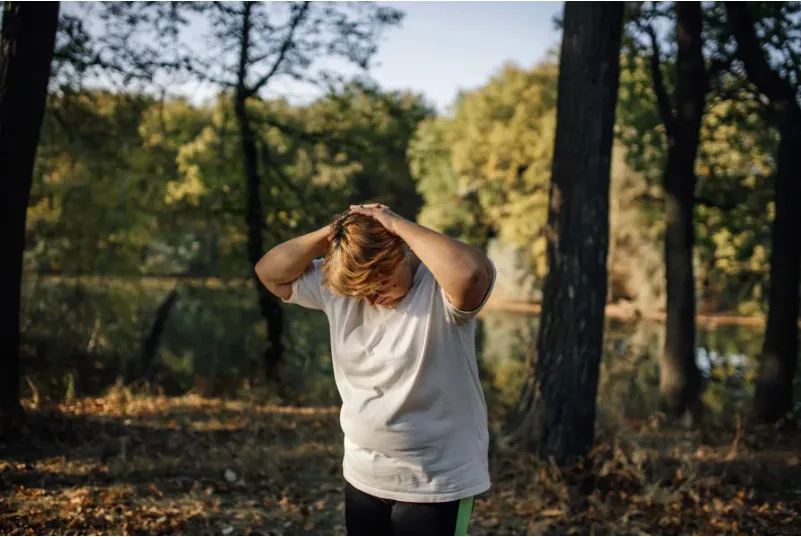
Health & Medicine
What actually works for anxiety and depression?

Tapering off or ‘deprescribing’ antidepressants is a complex process, but without tailored clinical guidelines, some people are turning to their peers instead of their doctors for support.
Published 28 May 2024
For many people, antidepressants are a lifesaving treatment.
But, for one in three antidepressant users in primary care, antidepressants may no longer be clinically beneficial and they may feel ready to stop taking them.

Long-term antidepressant use – defined as more than 12 months – carries the risk of adverse side effects including an increase in all-cause mortality, cardiovascular events, sexual dysfunction and emotional numbing.
Yet, as the number of antidepressant prescriptions continues to rapidly rise globally, there is not an equal amount of routine deprescribing in clinical practice.
General practitioners (GPs) in Australia and worldwide are uniquely placed to conduct deprescribing (a supervised and planned dose reduction) as they prescribe 86 per cent of antidepressants.

Health & Medicine
What actually works for anxiety and depression?
However, ceasing antidepressants is a complex process with many patient and GP barriers including a lack of safe guidance for tapering, fears of relapse and miscommunication between patients and doctors that jeopardises the doctor-patient relationship.
Withdrawal symptoms are prevalent in approximately 56 per cent of people who stop their antidepressants. These can often mimic relapse and result in a return to treatment even though addressing these symptoms could ultimately result in successful deprescribing.
Guidelines for antidepressant deprescribing do exist, however they do not provide tapering options that are tailored to individual patients, despite the complex nature of stopping. Further, GPs report not being aware of the guidelines or find them too vague to use in practice.
In the last few years, there has been a notable rise in the number of online support groups for antidepressant deprescribing. These groups have thousands of members, with a growth rate of 25 per cent each year.

Seminal work has found that most people turn to these groups due to previously failed attempts at deprescribing with a clinician.
Our recent study investigated the motivations and experiences of antidepressant users within these online communities.
We invited members of two large Facebook groups to complete an online survey where they could provide text-based responses to why they had joined the groups. The responses of 30 participants from across the globe were then explored to identify key themes.

Health & Medicine
Knowing when to seek help for mental health
Many people felt that their doctor prescribed antidepressants too readily. This meant they felt like the real cause of their low mood was dismissed or not thoroughly investigated.
It also meant that there was no room for shared decision making at the start of antidepressant treatment.
“My depression was caused by multiple major life stressors. If I had received counselling and appropriate support (as well as being taught non-drug coping techniques) I might not have needed an antidepressant or at least only needed it for a short period.” Female, aged 46-50+ years, Australia.
And
“[GP] knew I wasn’t keen on antidepressants but gave no alternatives. As part of my condition was upset stomach, a referral to a dietician or a test for food sensitivities could have been talked about.” Female, aged 46-50+ years, UK.

Some people were frustrated that they were not told about the complexities of stopping antidepressants at the beginning of treatment.
“If I was told what would happen when I tried to come off, I would’ve never have taken it in the first place. I was 17 at the time having been depressed due to hormonal changes. My mother took me to a GP and ten minutes [in] I was told I have a chemical imbalance and need to be on them for life.” Female, aged 36-45 years, Australia.
Many people reported a loss of faith in clinician expertise and skill in deprescribing practices. They felt frustrated in not being believed when speaking about experiencing withdrawal symptoms and of being sidelined in decisions regarding their mental health care.
“Debilitating withdrawal symptoms after following GP’s advice and coming off too quickly. Became suicidal (after never having anything like this before) I was only put on antidepressants for PMT and this was the scariest thing to ever happen to me.” Female, aged 46-50+ years, UK.
People have found solace in online communities by connecting with others who share similar struggles and aspirations. Discussions spanned from practical advice on tapering strategies to heartfelt exchanges of empathy and encouragement.

The validation received from peers, coupled with the wealth of shared experiences, served as a lifeline for many navigating the complexities of antidepressant deprescribing.
“I literally owe my life to the Facebook group. It was there that I learned why I was experiencing such bad withdrawals and how I could taper to make the process survivable. And the emotional support and companionship with others who truly understand is how I got through the hardest times.” Female, aged 26-35 years, US.

Health & Medicine
Mental health first aid training works
The reliance on online support networks underscores a gap in traditional clinical practices.
The absence of adequate information and support from healthcare providers leaves patients feeling isolated and misunderstood, driving them towards online communities in search of solidarity and guidance.
GPs are essential to good mental health care including antidepressant deprescribing. They are accessible and can provide continuity of care, initiate and monitor treatment, coordinate care, and disseminate knowledge of community resources.
People do report good experiences with clinicians, though this may not be the norm for antidepressant medication.
“My original GP was really supportive, he listened, he gave me support and information. The new one, he is great at other... more physical issues. But I couldn’t talk to him about mental health medication concerns. He told me when I changed over to him, that anything I was experiencing eight weeks after withdrawal, couldn’t be because of the medication.” Female, aged 46-50+ years, Australia.

People who turn to online groups for help with tapering their antidepressants may be more likely to have had negative experiences with clinicians. However, their experiences highlight potential gaps in clinical training, confidence and access to current guidance for safely guiding patients through antidepressant tapering.
Stopping antidepressants without clinical supervision can increase the risk of experiencing relapse, intolerable withdrawal effects and a return to treatment.

Health & Medicine
Transforming mental health care through lived experience
So, these patient stories provide a real opportunity to learn from patient experiences and develop evidence-based supports that can help healthcare providers to bridge the gap between clinical practice and patient need.
Essential to this process is enabling open dialogue and active listening to patient concerns and preferences regarding mental health treatment.
Online peer support groups for antidepressant deprescribing appear to be of benefit to antidepressant users who wish to reduce or stop their medication at a clinically appropriate time.
These resources could serve as supplemental support to good, evidenced-based clinical care by a GP.
If you or anyone you know needs help or support, you can call Lifeline on 13 11 14.